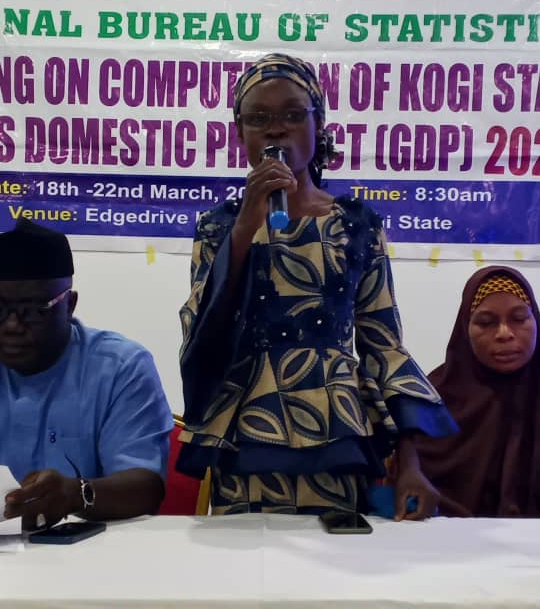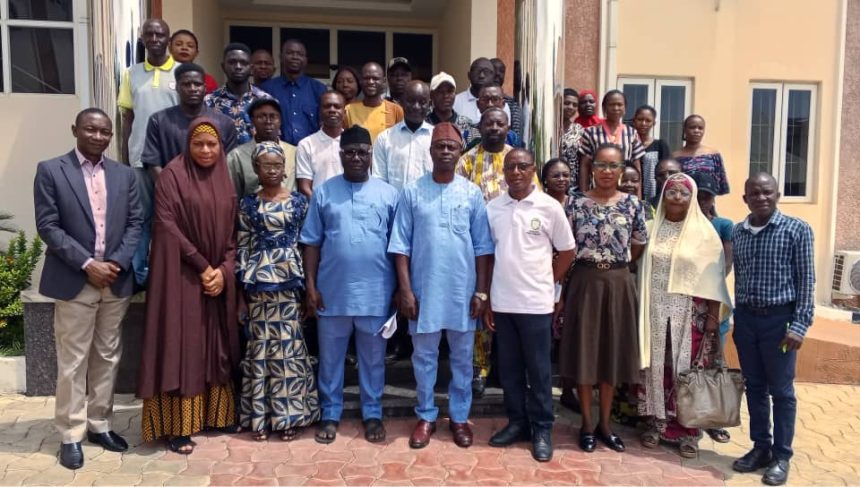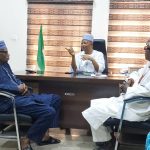By Joy Salami
In a bid to enhance economic planning and attract investment, the Kogi State Bureau of Statistics, in collaboration with the National Bureau of Statistics (NBS), has commenced a training program for 25 enumerators on the computation of the state’s Gross Domestic Product (GDP) for 2025

Declaring the training open, the Commissioner for Finance, Budget, and Economic Planning, Hon. Idris Asiwaju, represented by Malam Abubakar Isah, reiterated the importance of up-to-date GDP computation.
In his words, “GDP is a key economic indicator that provides insight into the state’s economic performance. The first GDP computation for Kogi State covered 2013 to 2017, while an update was conducted in 2022. Now, with the support of the National Bureau of Statistics, we are ensuring that Kogi State remains up to date in GDP computation, which is essential for robust economic planning.”
He acknowledged the support of the state government, led by Governor Usman Ahmed Ododo, and emphasised that the administration recognises the importance of data in governance.
Without accurate data, governance becomes difficult. This is why the state fully supports this exercise. Investors also rely on GDP figures to assess the viability of an economy before making investment decisions, he added.
Hon. Asiwaju highlighted that accurate GDP computation allows the government to assess economic progress, identify areas needing intervention, and formulate strategic policies to drive development.
He also commended the efforts of the Kogi State Bureau of Statistics in ensuring effective data collection and analysis for informed decision-making.
Speaking at the event, the Statistician-General of Kogi State, Mrs. Ayo-Alani Irewole, emphasised the significance of the exercise, stating that GDP computation is crucial for assessing the state’s economic value.
GDP represents the value of goods and services produced within the state. This exercise will enable us to know where we stand economically and help in effective planning. Without accurate data, planning becomes difficult, and as the saying goes, ‘when you fail to plan, you plan to fail, she said.
Mrs. Irewole highlighted that the survey would not only aid the government in policy formulation but also attract investors to Kogi State.
She disclosed that the training focuses on compiling Kogi State’s GDP data from 2019 to 2023. She added that a similar exercise was conducted last year, and this update will ensure accurate economic records.
GDP measures the total value of goods and services produced within the state. Knowing this helps us assess our economic strength, plan effectively, and attract investors, she stated.
Mrs. Irewole urged the newly trained enumerators to approach their tasks with commitment and integrity, stressing that data collection is crucial for the state’s development. She encouraged them to view the assignment as a service to themselves and their state, rather than merely an official duty.
This work is vital to the state. As enumerators, you are privileged to contribute to this process. It is not always easy to obtain accurate data, but I urge you to put in your best effort. When we improve Kogi State, we all benefit, she added.
The Statistician-General expressed deep appreciation to the Governor of Kogi State, Alhaji Ahmed Usman Ododo, for his continuous support in enhancing the state’s statistical system. She acknowledged his administration’s commitment to data-driven governance, transparency, and economic planning, which has made the GDP computation exercise possible.
Earlier, a representative of the National Bureau of Statistics (NBS), Aladare Emmanuel, commended the Kogi State Government for prioritising economic data collection.
He reiterated that GDP computation is crucial for assessing a state’s economic health and aligning it with national economic trends.
The National Bureau of Statistics is committed to supporting all states in Nigeria in compiling their GDP figures accurately. Kogi State is one of the states taking this process seriously, and this will help in policy formulation at both state and federal levels, he noted.
Emmanuel encouraged the enumerators to adhere strictly to data collection guidelines, ensuring accuracy and reliability in their findings.
He explained that the survey, being conducted across all 36 states of the federation, would provide a clear picture of Nigeria’s economic performance at both state and national levels.
Emmanuel disclosed that the enumerators participating in the training will be deployed door-to-door to gather primary data on business activities, production levels, and service output in Kogi State. The process, which is expected to last for 14 days, will involve face-to-face engagement with business owners and other economic stakeholders.
He advised the participants to approach the exercise with diligence and integrity.
Your work will form the foundation of Kogi State’s economic planning. The data you collect will be documented and referenced for years to come. I urge you to take this assignment seriously and ensure accuracy in your reports, he said.







